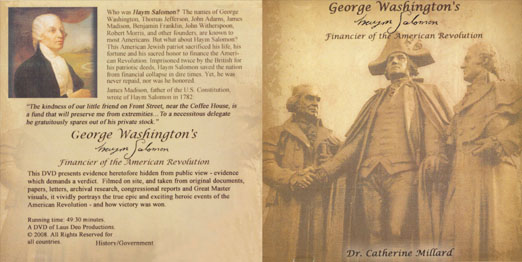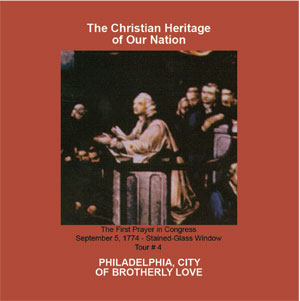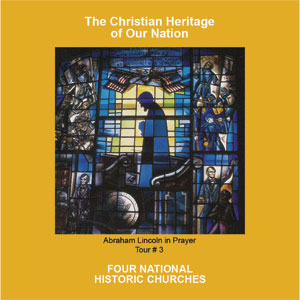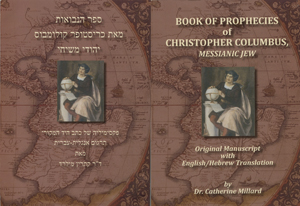Joseph Ward, D.D. was chosen by the citizens of South Dakota as their greatest hero in the U.S. Capitol Hall of Fame.
Ward’s father, Dr. Jabez Ward, was the country doctor and beloved physician of Perry Centre, a town in Western New York State. Dr. Ward ministered to both the body and soul of those who sought his help. His account books revealed extremely hard work for sparse compensation. He not only prescribed medicines, but also prepared them for his patients, receiving meagre returns. Ward’s sister wrote this account of Perry Centre, “…The strict keeping of Saturday night as the beginning of Holy Time, the nightly ringing of the curfew, the rolling of the bell on the death of anyone in the parish – all these were more conscientiously observed than in many Massachusetts towns.” Most of all, the community loved and worshiped the Lord in church; prayer, praise and Bible Study being a way of life.1
When Joseph was five years old, his father died of pneumonia, having left his sick bed to assist the birth of a child. His widowed mother, although an invalid, displayed Christian character and integrity, molding her son’s future, as she patiently resigned her soul into the hands of her blessed Redeemer. Her incurable disease caused increasing pain and helplessness.
It was thus that Ward’s magnificent character was developed, attending daily to his mother’s needs with tenderness, gentleness and faithfulness, until the age of fifteen. The constant watchfulness at her bedside and the thought of impending death wrought in him a clear perception of immortality through Christ’s atonement. He also acquired a taste for reading good books while attending his mother’s needs. Joseph had already devoured Josephus’ History of Israel, Milton’s Paradise Lost and other great works at eight years of age. It is said that Ward possessed a remarkable memory, later becoming a Latin scholar. Blackstone’s Commentaries also interested him.2
Ward’s preparation for the ministry began at Phillips Academy in Andover, Massachusetts, where he became the foremost Latin scholar. He spent eleven years in academy, college and seminary. After graduation from Phillips Academy in 1861, he matriculated at Providence, Rhode Island’s Brown University. Teaching at the Sunday School of the church which his sister’s husband, Rev. Stewart Sheldon, pastored, Ward fell in love with Sarah Wood, daughter of the Sunday School Superintendent, the Honorable Joseph Wood.
In 1865, Ward entered Andover Theological Seminary, which was then infused with missionary zeal. He became a great champion of missions, being described by Dr. C.F.P. Bancroft:
As a Theological student he showed the same traits which made him subsequently the effective home missionary, the faithful pastor, the enterprising and sagacious college president. There was the same candor of judgment, the same frankness and openness of expression, quickness of sympathy, abounding good humor, fertility of resources, same turn for practical business, the same integrity and solidarity of character and robust but gracious piety.
He was married to Sarah Frances Wood in Rhode Island 1868, shortly after graduating from Andover. The couple soon accepted a call to missionary service in Yankton, the capital of Dakota Territory, which was at that time a village comprising a few hundred residents in the far west of civilization. The first Congregational Church having just been formed at Yankton, Ward preached his first sermon in the bare lower room of the old Capitol building, from a pulpit made of a draped dry-goods box, his text coming from ICorinthians 3:11, “For other foundation can no man lay than that is laid, which is Jesus Christ.” His diary records indicate that it was a bitterly cold, snowy day, thirty-three persons being in attendance.3
Yankton was visited thrice weekly by a stage coach from Sioux City. During the summertime, river traffic was the only means by which supplies and freight were transported thither. Soon a missionary church was organized by him in Bon Homme. He also preached at Elm Grove, Nebraska; and Green Island, Dakota.
Through his leadership a Congregational Association in Dakota was formed encompassing the above churches, as well as churches which had sprung up at Canton, Sioux Falls, Dell Rapids, Vermilion, Springfield on the Missouri and the Indian Mission at Santee, Nebraska. It was thus that Joseph Ward gained the reputation of “father of Congregationalism in Dakota,” being the pioneer-minister and organizer of the earliest churches, together with the work of Dakota missions throughout the period of immigration. Interested in Indian Missions, he became the champion of the Indians’ welfare.4
In 1872, he organized the Yankton Academy, forerunner of Yankton College. It was the foremost academic institution of Dakota Territory and continued in its academic excellence.
The motto Dr.Ward chose for the College was, “Christ for the World,” and the widely-known and sung hymn from which the phrase originated became the College Hymn. The College bell then had a verse from this hymn inscribed upon it:
At morn, at noon at twilight dim,
My voice shall sound, the earth around,
Christ for the world, the world for Him.
On Thanksgiving Day, 1879, the leaders and inspirers of South Dakota’s statehood movement convened at Yankton. They met in the home of Rev. Stewart Sheldon, brother-in-law of Joseph Ward. These leaders comprised Joseph Ward, the Honorable William A. Howard, Governor of the Territory of Dakota, General Hugh J. Campbell, United States Attorney for Dakota, General W.H.H. Beadle, Territorial Superintendent of Public Instruction, Mr. E.P. Wilcox, Mr. H.H. Smith and a few others. This meeting was the beginning of plans resulting in the admission of South Dakota to the Union.
At this Convention, Dr. Ward was chairman of the Committee on Arrangement and Phraseology of the Constitution, as well as member of the Committee on Seal and Coat of Arms. South Dakota owes a great debt of gratitude to Joseph Ward for its Motto, inscribed upon the State Seal, “Under God the People Rule.” This Motto signifies the spirit of the people of South Dakota in the movement for statehood, which was Christian in nature, stating the fact that under God’s authority (His Word) the people maintained their rights.5
The Constitution formed by the 1885 Sioux Falls Convention, in time became the Constitution for the State of South Dakota. However, the struggle for statehood continued for four additional years prior to South Dakota’s admission into the Union.
On Thanksgiving Day, 1889, returning from a visit to Sioux Falls for preaching engagements, Joseph Ward preached once more at the Union Service of the Yankton churches. However, on December 11, 1889, Ward’s sudden death from blood poisoning was no doubt hastened by his steadfast, loyal and unrelenting hard labor in the mission of Dakota. During the last hours of his life he delivered a special message of love and encouragement to each family member as well as each faculty member of Yankton College. His last message to the Trustees of the College was: “Do not stop anything for me. The work must go on, no matter what becomes of the workers.”6
On September 27, 1963, a welcome and statement of greeting was given by the President of the United States at the unveiling of his statue in the Rotunda of the U.S. Capitol. This was followed by a reading of the poem, “Ward of Dakota.”
Ward of Dakota
The winds sang welcome on the waiting prairie
When Joseph Ward came journeying to Dakota;
Not he the hunter, armed and predatory.
Not he the seeker of a gilded future.
Not he the emissary of greedy empires;
Compassion was his guide, and love his mission.
Out of the east he came, a knight un-knighted,
Clad in invisible armor, God-directed:
And where his journey ceased, his hands created,
With sweat and toil, a citadel of learning.
A nursery of thought, a spring of knowledge;
Whose broad far-reaching gains are yet uncounted.
To him as builder, leader, youth-inspirer,
To him as seer and prophet of high vision,
To him as never-wearying burden-bearer,
To him as seeker of new paths, and opener
Of blinded eyes, with courage never flagging
Waging a war to banish wrong and evil
Wherever found, by letting light and truth in:
Homage is due, and love, and long remembrance.
Mabel Frederick, Sioux Falls, South Dakota.
To learn more, click here.
____________________
Bibliography:
1Official Documentation. Office of the Architect of the Capitol, Washington, D.C.
2Ibid.
3Ibid.
4Ibid.
5Ibid.
6Ibid.























